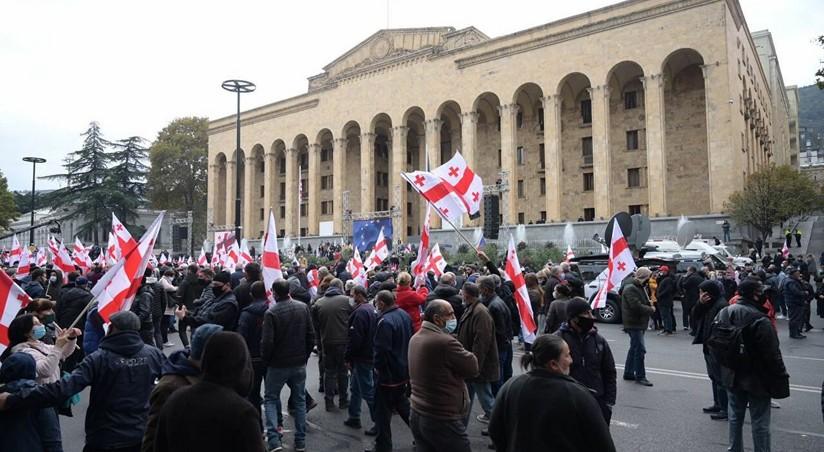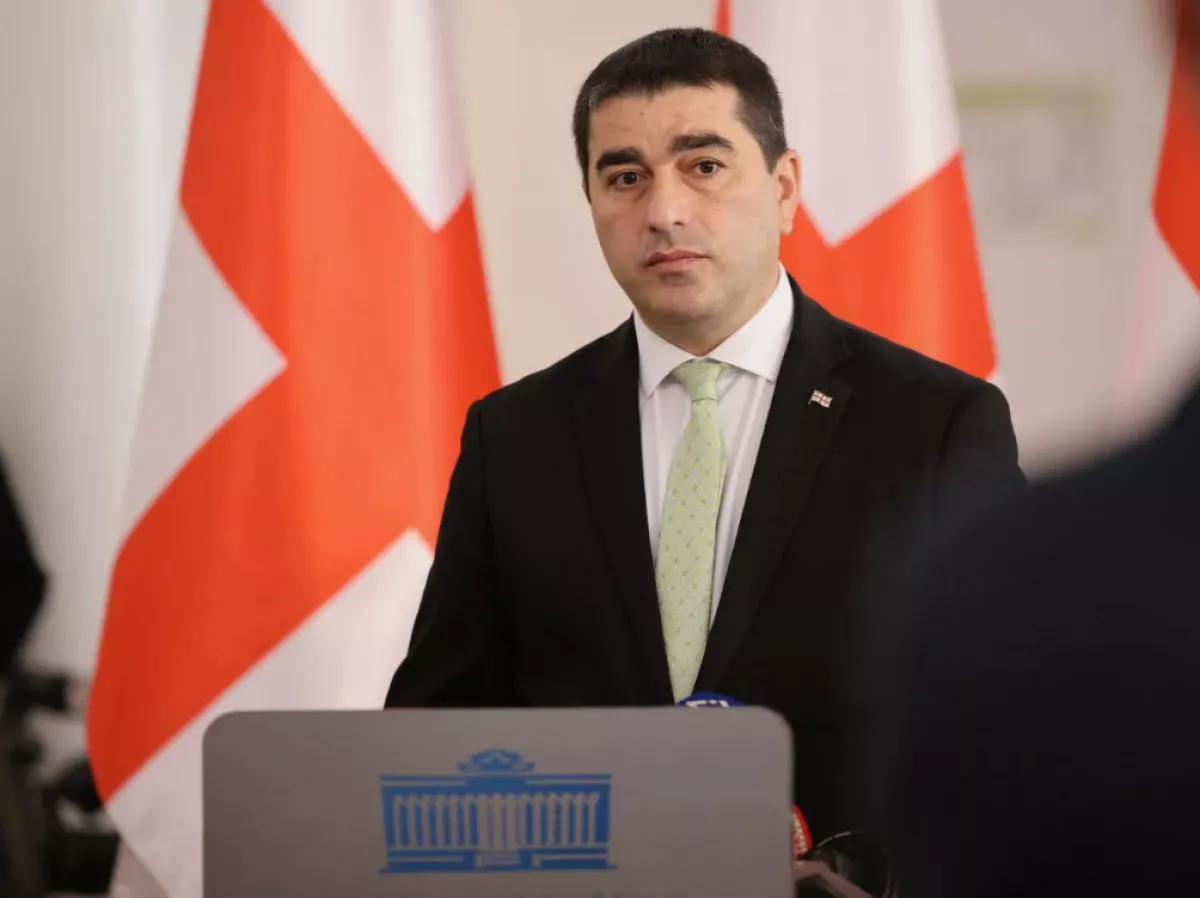West exerts pressure while Tbilisi stands firm Pseudo-Liberal Values vs. Sovereignty
It is no longer surprising to observe the rapidity with which external forces, often with their own agendas, apply pressure on countries that pursue independent policies. This phenomenon typically intensifies in the lead-up to significant political events and major international forums. For instance, concerning Azerbaijan, we can clearly discern this trend in the context of the upcoming COP29 event in November. Similarly, neighbouring Georgia is experiencing heightened pressure ahead of its parliamentary elections scheduled for October 26.
In the context of Georgia, the active involvement of external forces has been evident since the discussion of the draft law on "Transparency of Foreign Influence," which came into effect on August 1, 2024. Foreign interests are struggling to accept provisions that classify non-profit organizations and media outlets as agents of foreign influence if more than 20 per cent of their annual income comes from foreign funding. They are also opposing the requirement for these entities to submit annual income and expenditure declarations to the Ministry of Justice.
As a result, in late June, EU foreign policy chief Josep Borrell announced a review of financial assistance to the Georgian government. On July 9, the EU froze €30 million in military aid to Georgia, followed by the suspension of funding for several other programs by the European Union or individual countries. This occurred alongside open support for the opposition.
It was no coincidence that in his address to the citizens on September 9, Bidzina Ivanishvili, the head of the ruling Georgian Dream party, accused the United National Movement of attempting to "entangle Georgia in Russia's war against Ukraine" and opening a "second front," asserting that these actions were the result of "direct orders from their foreign patrons." Against this backdrop, he emphasized that the Georgian Dream is engaged "not in an election campaign, but in a struggle to protect the peace, sovereignty of our country, our traditions, and values, where one of the main arenas of this struggle is the parliamentary elections." He further vowed to "put an end to the violent attempts by foreign countries to impose pseudo-liberal values on our people."

It is evident that external parties with vested interests have shown no intention of accepting the views expressed by Georgian officials, leading to intensified pressure on Tbilisi. Initially, Washington imposed sanctions on 64 Georgian citizens and subsequently revoked the invitation to Prime Minister Irakli Kobakhidze for a reception on September 25. The US Embassy in Georgia justified this decision by citing "anti-democratic actions, disinformation, and negative rhetoric towards the US and the West." This exemplifies a form of democracy that has only become more pronounced in recent days.
In a related development, the Lithuanian Foreign Minister, alongside anti-Azerbaijani rhetoric, accused the Georgian authorities of "intimidating the political opposition, civil society, and the general population." On the same day, a declaration from the Parliamentary Assembly of the Council of Europe (PACE), signed by 24 deputies, accused the Georgian government of “preparing to steal the upcoming parliamentary elections."
During this time, the US Embassy ramped up its social media activity, stating that "isolation of Georgia from the West is against the interests of its people." Furthermore, Michael Carpenter, the US National Security Council's Director for European Affairs, confidently asserted that the official Tbilisi is "violating fundamental freedoms" of its citizens.

However, there is no sign of panic from the Georgian government in response to the anti-Georgian actions of external forces. Irakli Kobakhidze merely noted that the pressure on Tbilisi, "related to specific interests, will continue until the end of the year." He then accused the "party of global war" of exacerbating tensions between the US and Georgia, a sentiment echoed by Bidzina Ivanishvili, who claimed this group "exerts significant influence over politicians and bureaucrats in both the US and the EU."
Against this backdrop, on October 3, Georgian Parliament Chairman Shalva Papuashvili signed the law on "Family Values and the Protection of Minors." He acknowledged that this move would likely draw negative reactions from "some foreign partners," but emphasized that "Georgians have never feared foreign judgments, and our faith, common sense, and dedication to the country compel us" to make decisions in the state's best interests.

Papuashvili's foresight was spot on. Initially, German Chancellor Olaf Scholz criticized the "anti-LGBT law" as discriminatory and a violation of fundamental human rights, warning of Georgia's "alienation from Europe." Following this, the British Ambassador expressed regret over the signing of the law, coupled with the "Transparency of Foreign Influence" legislation, which undermines "fundamental human rights" and poses "risks for the entire population of Georgia." However, Tbilisi has shown no reaction to these declarations, especially since the new law establishes May 17 as the Day of Family Purity and Respect for Parents, declaring it a public holiday.
Amidst this backdrop, Western-funded media outlets operating in Georgia, such as OC Media and JAM News, are relocating to other countries, particularly Armenia and the Baltic states.
Thus, it becomes evident that states that proudly label themselves as the "bastion of democracy and defenders of human rights" are, in reality, attempting to suppress freedoms in other countries while disregarding the decisions made by legitimately elected parliaments. This only demonstrates that these external forces are dissatisfied with situations where certain countries seek to strengthen their sovereignty and national security based on adherence to cultural and spiritual values as well as national traditions.
It is quite telling that these engaged circles adopt a similar approach even toward EU member states, particularly Hungary. But more on that in the next article.








